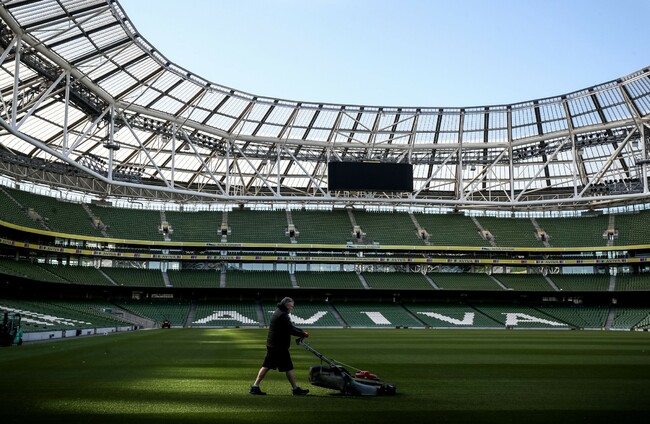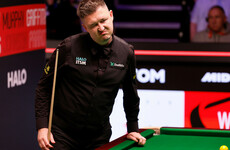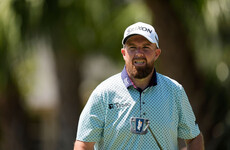LAST UPDATE | 17 Aug 2020
IT’S A LITTLE over eight months since Leinster played in the Aviva Stadium.
When they return on Saturday there will be no sense of mid-season momentum, no festive cheer. In fact, there will be very little cheering of any sort because the 42,041 who watched them put 50 points on Northampton in the flesh will be barred.
Empty sporting venues have become a regular feature broadcasts in recent weeks as football, basketball and golf made their way back. And while fans of rugby could indulge in what seemed like nostalgia by watching full houses pack in to see New Zealand’s competition play out, even the isolated pacific nation has had to shut its stadia again and cancel a fixture to halt community transmission of Covid-19.
Empty venues, without the roar of approval for a well-made tackle, a cleanly-taken high ball or a gutsy late delivery of energy are a part of sport we all must get used to. And after Munster revealed a Covid-19 case within their academy, we really should embrace it as a bonus.
As Leinster prepare to host Munster in an eerily empty Aviva on Saturday, they are banking on their efforts in training to prepare them for a big-game in front of thousands of empty seats.
“None of us really have experience of it. So it will be new,” says Rhys Ruddock.
“As opposed to arriving at a game and there not being as many people as you’d expect and the atmosphere being damp, we know what to expect,” Ruddock said, welcoming one less variable.
It’s literally going to be our energy that will dictate the atmosphere for us. The way we deal with it is training at slightly higher intensity, higher pressure in training.
“So there’s no fans, but we’re going to be asked to commit like it’s a game; get used to match scenarios, playing with scoreboard pressure, all those things that make it feel like a real game. It’s slightly different when you’re playing against Munster or Ulster, but it’s seriously competitive in here at the moment, everyone’s fighting for places.”
That high intensity reached a peak during Leinster’s sessions last week, but it has been a relatively short run-up to the restart with senior coach Stuart Lancaster only returning to on-field coaching a fortnight ago after spending lockdown with his family in England.
“Yeah, we have. We talked about it this morning as a matter of fact.
“A lot of our training takes place behind closed doors,” Lancaster said last week, “a lot of our internal competition that we generate is there so the players are used to training and putting performances in in training sessions without people watching.
“We trained at the RDS, as an example, with a referee to replicate what looks and feels like. We have talked about it. You can look at examples from German football which was the first one back and there were stats about more away wins.
“I was watching Leeds Rhinos (last weekend), at home, and they lost 48-0 against St Helen’s.
“It will be different but it is up to us to generate our own atmosphere, energy and enthusiasm because normally you rely on that RDS or Aviva crowd to help you with that.
“If you were to ask the players what would you take they would definitely take playing behind closed doors. For the sporting public as well, I would hope that they would take that too. We’re just delighted to just train, which is amazing, and then to play competitive rugby. People will enjoy it from home I am sure and if things improve hopefully we can get some crowds in.”
While there is a lament from Ruddock when he says it ‘will be different’ playing without supporters in the stands, the overriding message the back row gives is gratitude.
Sport’s hiatus gave us all time and space to think about the big picture and weight up what was really important. Ruddock was not part of the Ireland squad when their Six Nations campaign was halted, but his place in Andy Farrell’s pecking order has not been weighing on his mind.
“It’s made everyone really grateful and appreciate the job we get to do, getting back together and getting ready for a game in a couple of weeks time… you’re kind of, ‘wow, how lucky are we to be able to do this job’.
It’ll be good to be back, even if things aren’t quite what they used to be.
First published today at 07.00











I don’t know who Valeri is…
@Alex Olsen: best post ever
@Alex Olsen: he’s good on FIFA, that’s all I really know about him.
valeri is the best player in the league
@Thomas Ryan: if he’s that good, why doesn’t Valeri come on over, to Europe……..